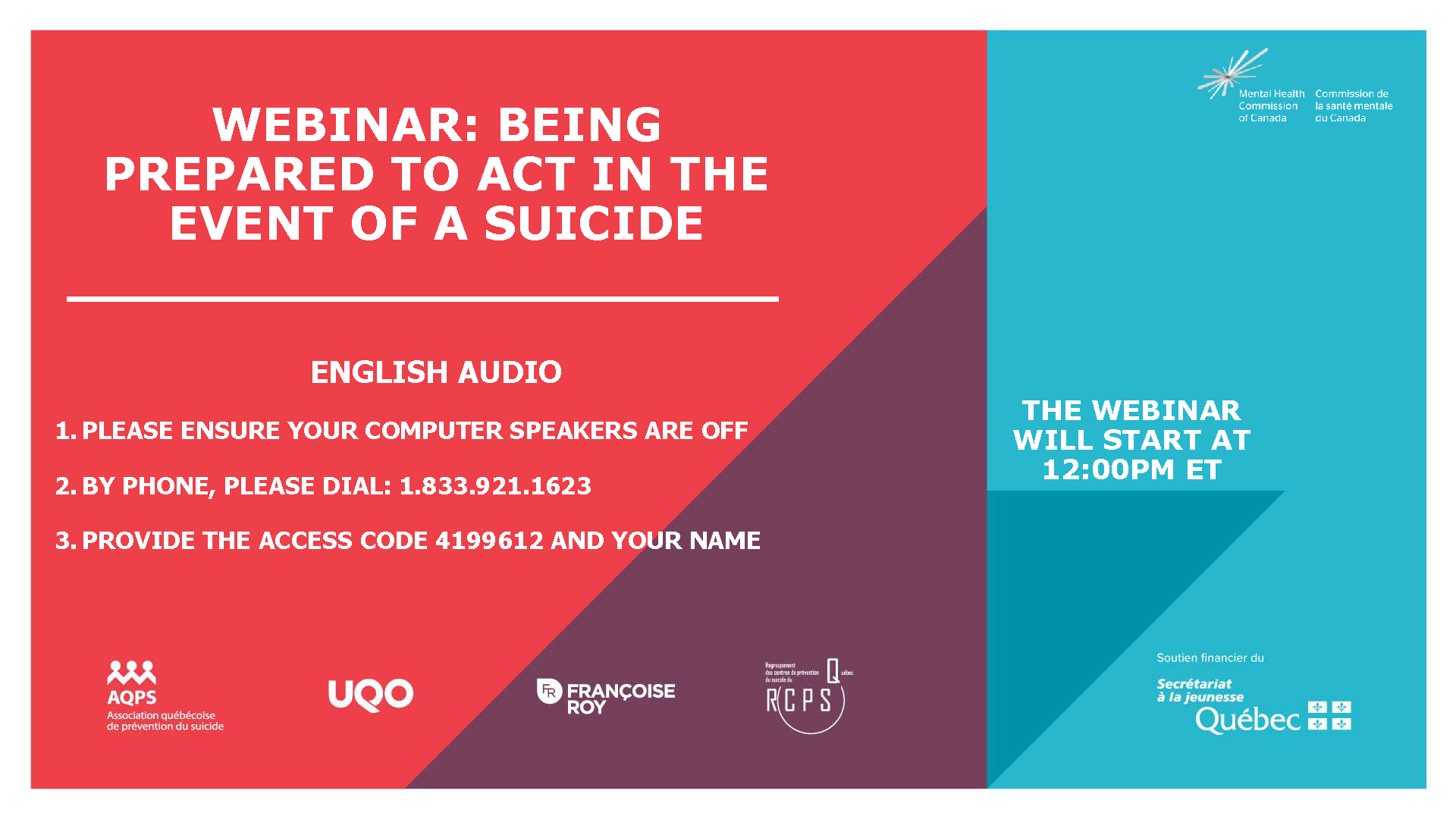If you are in distress, you can call or text 988 at any time. If it is an emergency, call 9-1-1 or go to your local emergency department.
Postvention Program: Being prepared to act in the event of a suicide – Webinar
*Please note, some terms used at the start of the webinar are not considered safe language when it comes to talking about suicide. We apologize for the use of these terms. This was corrected later in the webinar. For more information on safe language, please visit the Language Matters: Safe Communication for Suicide Prevention guide* The webinar discusses the Being Prepared to Act in the Event of a Suicide postvention program, launched this past February in Quebec. The multimodal program includes various strategies, which can be offered simultaneously based on sequential phases for different subgroups. Informing the program were different analyses, including a study that used a Delphi method consensus as well as a strategic evaluation. The study was completed in partnership with: Funding for the program was provided by the Secrétariat à la Jeunesse du Gouvernement du Québec. The webinar was presented by Monique Séguin, PhD. Dr. Séguin, the program’s co-author, is a professor in the Department of Psychology and Psychoeducation at the Université du Québec en Outaouais as well as a researcher at the McGill Group for Suicide Studies and a member of the Réseau québécois de recherche sur le suicide, la dépression et les troubles associés (Rqsdta).
Postvention refers to the actions taken in a school or a community setting in response to a death by suicide. While the efficiency of postvention programs for reducing the rate of suicide must still be demonstrated empirically, clinical experts are suggesting that they are a best practice for preventing a “ripple” effect.
SHARE THIS PAGE
RELATED

Review our Assessment Framework for Mental Health Apps — a national framework containing key standards for safe, quality, and effective mental health apps in Canada.

To help expand the use of e-mental health services, we developed four online learning modules based on our Toolkit for E-Mental Health Implementation, in collaboration with the Centre for Addiction and Mental Health (CAMH).

Stepped Care 2.0© (SC2.0) is a transformative model for organizing and delivering evidence-informed mental health and substance use services.

